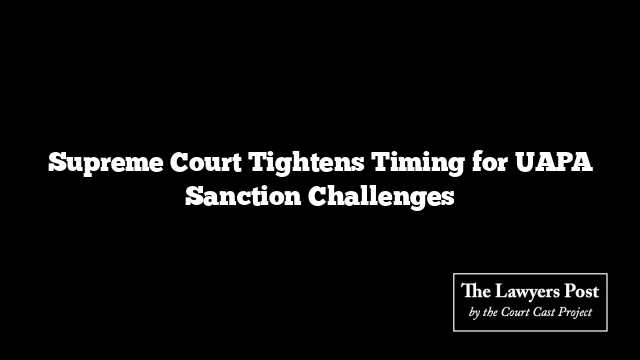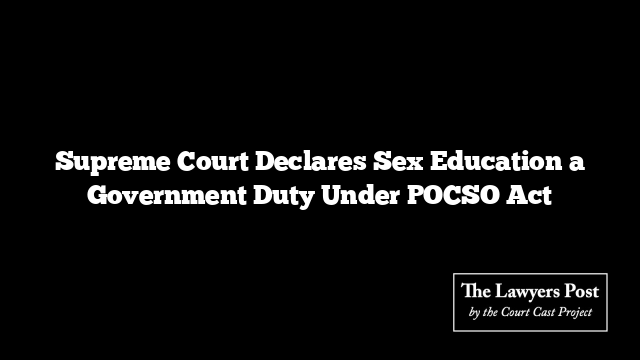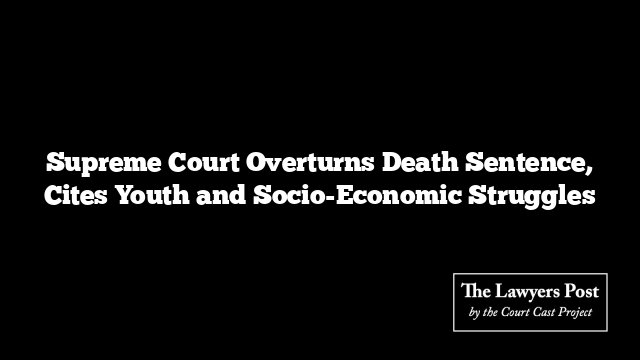In a recent decision, the Supreme Court clarified that challenges to prosecution sanctions under the Unlawful Activities (Prevention) Act (UAPA) should be raised at the earliest opportunity, though it acknowledged exceptions may exist. The ruling addressed situations where an accused might contest the sanction on the grounds of insufficient evidence or failure of the sanctioning authority to properly evaluate the case.
The bench, comprising Justices C.T. Ravikumar and Sanjay Karol, emphasized that UAPA lacks provisions seen in other laws—such as the Criminal Procedure Code (CrPC) or the Prevention of Corruption Act—that allow sanctions to be saved in the case of irregularities. The court noted that the legislative framework of UAPA relies on a dual-check process involving two authorities who review the evidence before sanctions are granted.
According to the court, these authorities have just seven working days to complete their review and issue a recommendation on sanctions. Once a sanction is deemed invalid, there’s no mechanism within the UAPA to rectify the flaw.
The decision stemmed from the case of Fulleshwar Gope, in which the accused had waited until later stages of the trial to challenge the validity of the sanction. The court clarified that while it’s preferable to raise such challenges early, the right to do so isn’t strictly time-bound. However, it stressed that using a sanction challenge to unduly delay proceedings was unacceptable.
The ruling reinforced that challenges to UAPA sanctions must be based on solid grounds, such as a lack of evidence, failure to apply due diligence, or the inadequacy of material. In such cases, evidence must be brought before the trial court, which is responsible for determining the competence of the sanction and whether the trial can proceed.
Though the court declined to address the specific validity of the sanction in Gope’s case, noting that 113 witnesses out of 125 had already been examined, the ruling sets a clear precedent on the timing and grounds for challenging sanctions under UAPA.





